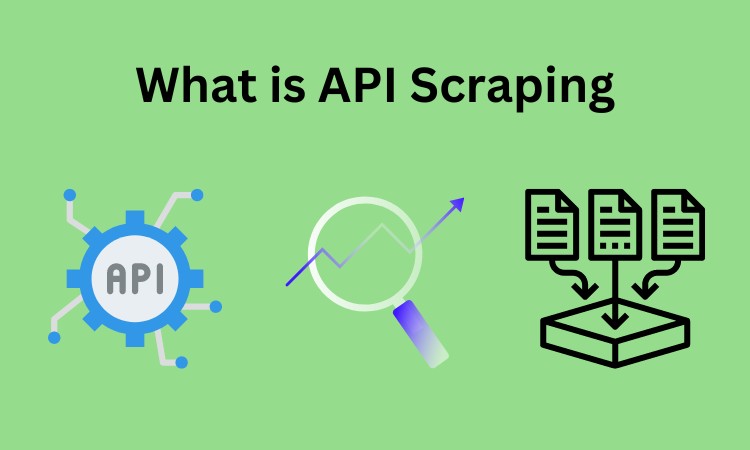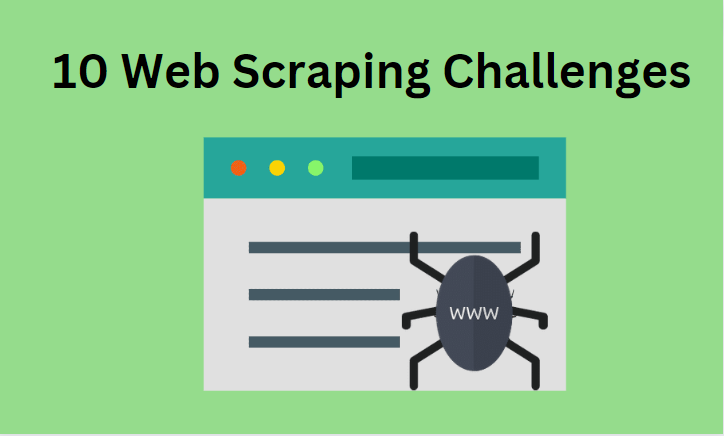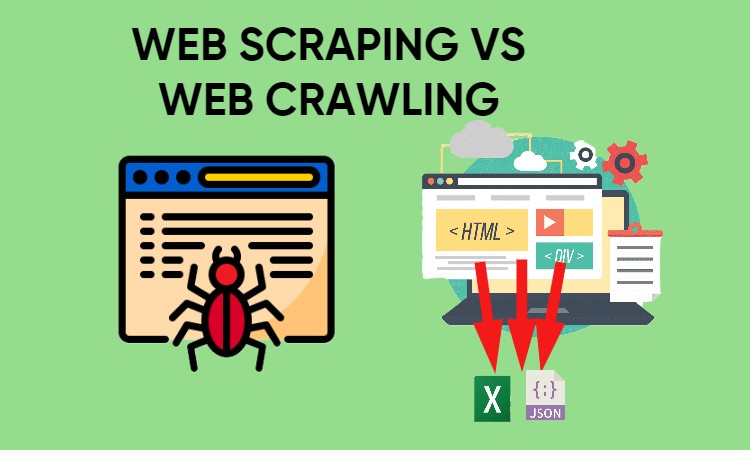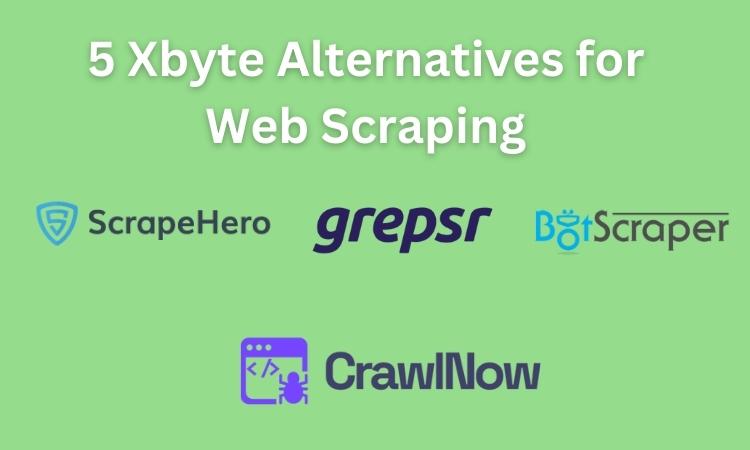Best Tripadvisor Data Scraping Techniques
Learn about the legality of scraping TripAdvisor, the availability of its API, scraping techniques using Python, and how TripAdvisor collects data efficiently
Tripadvisor, a renowned platform for travel-related information and reviews, holds a treasure trove of data that can provide invaluable insights to businesses across various industries. However, manually extracting and analyzing this data can be laborious and time-consuming. This is where data scraping techniques come into play, offering a streamlined approach to extract and analyze Tripadvisor data efficiently. In this comprehensive guide, we will explore the intricacies of Tripadvisor data scraping techniques, empowering businesses to unlock actionable insights and stay ahead of the curve.
Why Scrap Tripadvisor?
Before delving into data scraping techniques, it’s crucial to understand the compelling reasons for scraping data from Tripadvisor:
Market Intelligence: Tripadvisor serves as a valuable source of market intelligence, offering insights into consumer preferences, trends, and competitive landscapes. By scraping Tripadvisor data, businesses can gain a comprehensive understanding of market dynamics, enabling informed decision-making and strategic planning.
Competitor Analysis: Monitoring competitor activity is essential for staying ahead in today’s competitive landscape. Tripadvisor data scraping allows businesses to track competitor performance, analyze customer feedback, and identify areas for improvement. By benchmarking against competitors, businesses can refine their offerings and enhance their market position.
Product Development: Customer feedback on Tripadvisor provides invaluable insights for product development and innovation. By scraping reviews and ratings, businesses can identify customer pain points, gauge sentiment, and uncover emerging trends. This data-driven approach enables businesses to tailor their products and services to meet evolving customer needs effectively.
Pricing Strategies: Pricing plays a pivotal role in consumer purchasing decisions, especially in the travel industry. Tripadvisor data scraping enables businesses to analyze pricing trends, monitor competitor pricing strategies, and optimize their own pricing models accordingly. By leveraging pricing intelligence, businesses can maximize profitability and maintain a competitive edge.
Marketing Insights: Understanding consumer preferences and behaviors is crucial for crafting targeted marketing campaigns. Tripadvisor data scraping provides valuable insights into consumer demographics, interests, and travel preferences. By analyzing this data, businesses can develop personalized marketing strategies that resonate with their target audience, driving engagement and conversions.
Overall, scraping data from Tripadvisor offers businesses a multitude of benefits, ranging from market intelligence and competitor analysis to product development and marketing insights. By leveraging Tripadvisor data scraping techniques, businesses can unlock actionable insights that drive strategic decision-making, foster innovation, and enhance competitiveness in today’s dynamic marketplace.
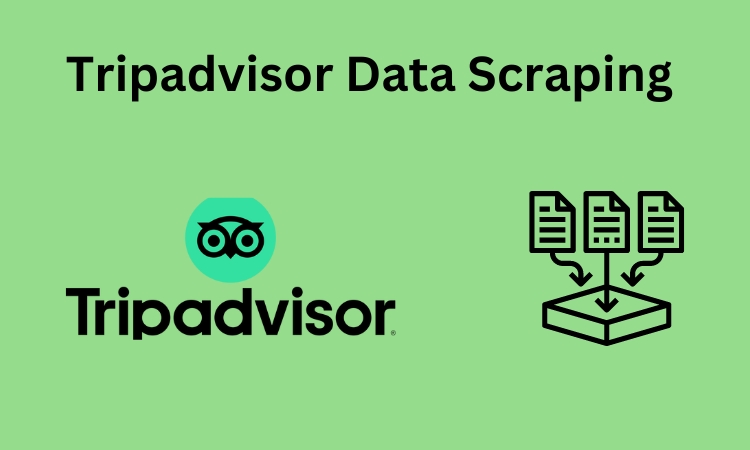
Tripadvisor Data Scraping Techniques:
Tripadvisor, a popular platform for travel-related information and reviews, contains a wealth of valuable data that can provide insights into customer preferences, market trends, and competitor strategies. However, accessing and analyzing this data manually can be time-consuming and inefficient. This is where data scraping techniques come into play, offering a streamlined approach to extract and analyze Tripadvisor data effectively.
What are Tripadvisor Data Types:
Before diving into data scraping techniques, it’s essential to understand the types of data available on Tripadvisor and their potential applications. Tripadvisor hosts a vast repository of user-generated content, including reviews, ratings, photos, and more, covering various aspects of travel such as accommodations, restaurants, attractions, and activities. This data can be invaluable for businesses looking to understand customer preferences, identify emerging trends, monitor competitors, and enhance their offerings.
Data Scraping Basics:
At its core, data scraping, also known as web scraping, involves the automated extraction of data from websites. While manual data collection may suffice for smaller-scale projects, it proves inefficient when dealing with the extensive volume of data available on Tripadvisor. Data scraping offers a solution by automating the extraction process, enabling businesses to gather structured data from Tripadvisor pages swiftly and efficiently. By leveraging data scraping techniques, businesses can save time and resources while gaining access to valuable insights that drive informed decision-making.
Tripadvisor Data Scraping Techniques:
Several techniques and tools facilitate effective data scraping from Tripadvisor. Let’s explore some of the prominent approaches:
Web Scraping Libraries: Python libraries such as BeautifulSoup and Scrapy are widely utilized for web scraping tasks. These libraries provide robust functionalities for parsing HTML and extracting desired data elements from Tripadvisor pages. With features like tag navigation and data extraction, web scraping libraries offer a versatile toolkit for retrieving Tripadvisor data with ease.
API Integration: Tripadvisor offers Application Programming Interfaces (APIs) that enable developers to access structured data in a systematic manner. By integrating Tripadvisor APIs into their applications, businesses can retrieve data such as reviews, ratings, and location information directly from the platform. API integration streamlines the data retrieval process, providing businesses with timely access to relevant information for analysis.
Proxy Rotation: To mitigate the risk of IP blocking and ensure uninterrupted data scraping, employing proxy rotation techniques is essential. Proxy servers route requests through different IP addresses, making it challenging for Tripadvisor to detect and block scraping activity. By rotating proxies periodically, businesses can maintain a steady flow of data without encountering obstacles.
Data Parsing and Analysis: Once the data has been scraped from Tripadvisor, it requires parsing and analysis to derive meaningful insights. Techniques such as sentiment analysis, topic modeling, and trend analysis can help businesses uncover patterns and trends within the scraped data. By applying advanced analytics methodologies, businesses can extract actionable insights that drive strategic decision-making and enhance competitiveness.
Related: IP Rotation for Web Scraping: Overcome IP Ban
Best Practices and Legal Considerations:
While data scraping offers significant benefits, it’s crucial for businesses to adhere to best practices and legal guidelines to avoid potential pitfalls. Respect for Tripadvisor’s terms of service is paramount, ensuring that scraping activities comply with platform policies. Additionally, safeguarding data privacy and security is essential, particularly when handling sensitive information such as user reviews and personal data. By adopting ethical scraping practices and prioritizing data protection, businesses can mitigate risks and foster trust with Tripadvisor and its user community.
FAQs
Is scraping TripAdvisor legal?
It depends on how the data is used. While scraping itself is not illegal, it may violate TripAdvisor’s terms of service. It’s essential to review and comply with their policies to avoid legal issues.
Is the TripAdvisor API free?
TripAdvisor offers both free and paid tiers for its API services. The availability of free features and limitations may vary based on the specific API endpoints and usage requirements.
How do I scrape TripAdvisor using Python?
You can scrape TripAdvisor using Python by utilizing web scraping libraries such as BeautifulSoup or Scrapy. These libraries allow you to programmatically extract data from TripAdvisor pages by parsing HTML elements.
How does TripAdvisor collect data?
TripAdvisor collects data from user-generated content, including reviews, ratings, photos, and more. Users contribute this content by sharing their experiences, opinions, and recommendations on various travel-related aspects such as accommodations, restaurants, attractions, and activities.
Conclusion
Tripadvisor data scraping presents a valuable opportunity for businesses to harness the power of data analytics and gain a competitive edge in the travel industry and beyond. By leveraging automated scraping techniques and robust analysis methodologies, businesses can unlock actionable insights from Tripadvisor’s vast repository of user-generated content. However, it’s imperative to approach data scraping ethically and responsibly, adhering to best practices and legal considerations. With the right tools and techniques, businesses can transform Tripadvisor data into strategic insights that drive innovation, growth, and success in today’s dynamic marketplace.
